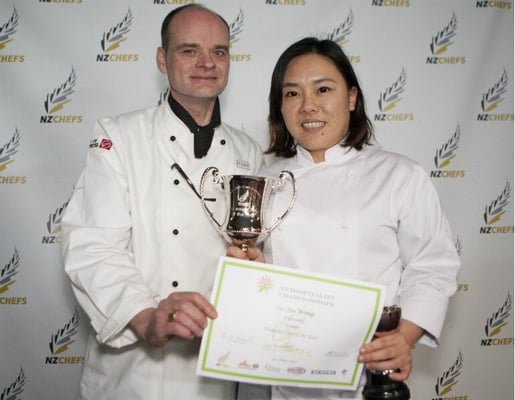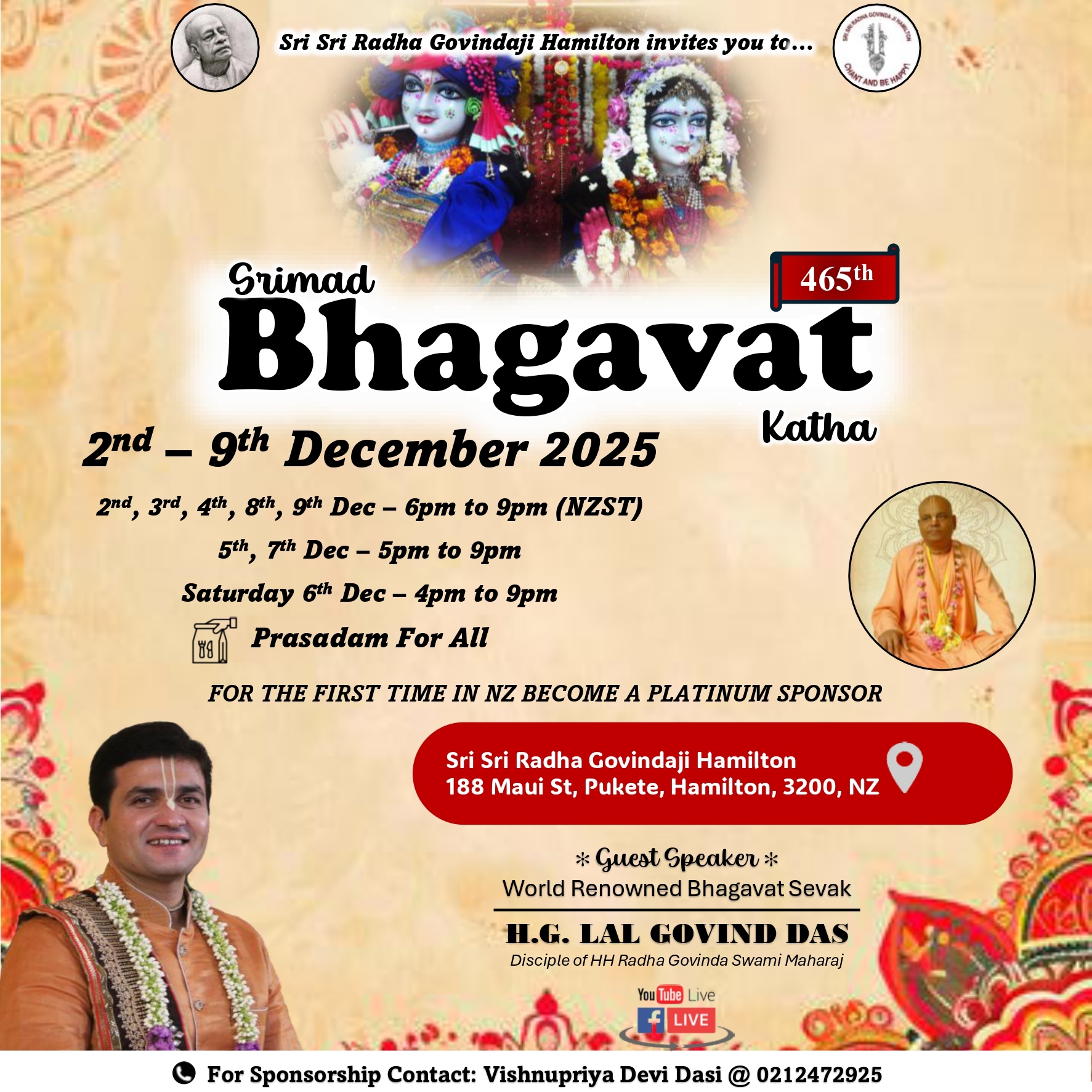Why is PBRS the best culinary school in New Zealand?

Cuisine is an art and to flourish in a very competitive food industry, one has to learn and train from the best in the market.
PBRS, Professional Business & Restaurant School in Auckland has a reputation of giving the industry chefs who have made a brand for themselves and given awards winning restaurateurs. The success stories of the students reflect upon the claim of excellence that the school often
The Indian Weekender spoke to the programme manager of PBRS in Auckland Michael Corbett to know what makes PBRS the best culinary school in New Zealand.
IWK: Why do you think PBRS offers the best courses and training in the country?
Michael: From a programme manager’s point of view, I feel we have the best culinary school in the country. Why I would firmly believe that is because we have a mixture of both young and old trained professionals who have been teaching for some time and we also have chefs who have industry knowledge and impart the same to our students to succeed in the industry.
IWK: The tutors at PBRS, what approach do they take for teaching these young minds?
Michael: Our chef tutors are very passionate about what they do and make sure that our students have a real understanding of the basics and advanced principles that are needed there, in every live working environment. They are always onboard to give extra information if required by a student, even spend extra time after class hours to provide one-on-one coaching, if needed.
IWK: What is that extra mile that PBRS walks to prepare its students for the real-life experience?
Michael: We spend a lot of time and resources encouraging our students to compete at regional and national level culinary and hospitality competitions that are held every year in Auckland. Our teachers spend extra time outside the classroom time to enhance and polish students’ skills so that they can achieve their dreams and aspirations.
IWK: While studying, how do your students get a real-time experience of handling a kitchen, organising an event etc.?
Michael: We have fully functional training kitchens as well as a fully equipped world class restaurant where we invite guests from different places at different intervals to dine and gain real-world experience of a restaurant. The students take feedbacks from the customers so that they can identify what their shortcomings were, and how they can improve their food and service for the diners.
IWK: How are the courses designed at PBRS, if you could give a brief idea
Michael:In the first year, students learn necessary skills such as making sauces, soups and salads right through to pastry, bread making and a full a la carte, buffet, function menus. This comprehensive skill acquired ensures that the student can respond effectively and efficiently to the requirements of a modern kitchen.
In the second year, the students specialise in either hot & cold cookery or patisserie. This learning is followed by learning some essential managerial skills needed to run a kitchen or a restaurant or a bar. The next modules include studying supervisory and management aspects of catering including the supervision of food safety, management of resources, supervision of staff training, menu planning and costing and global influences on eating and drinking.
These subjects are selected in the 2nd year under International Cuisine studies and advanced food production, kitchen operations and advanced food production.
Another important section of second-year studies is Advanced applied food project and work placement. This completes their next set of skills which is work placement, plan and organise a food & beverage event and plan, design and produce a food product.
IWK: To sum up, what is the outcome you see in your students?
Michael: Students gain practical experience working in in-house kitchen and restaurant, have an increased capability in advanced culinary techniques, operations and human resource management, nutrition, kitchen operations, design and production systems, food costing, menu design, regional cuisines, and culinary products.
IWK: What positions of jobs can they get into after completing their course?
Michael:We are employed in a supervisory and managerial role in the hospitality industry. They can also be hired as a chef in senior positions producing advanced dishes in any professional kitchen. Other significant job opportunities for them are as Commis Chef, Demi Chef de Partie, Chef de Partie, Sous Chef, Head Chef, and also as Executive Chefs.
Cuisine is an art and to flourish in a very competitive food industry, one has to learn and train from the best in the market.
PBRS, Professional Business & Restaurant School in Auckland has a reputation of giving the industry chefs who have made a brand for themselves and given awards winning...
Cuisine is an art and to flourish in a very competitive food industry, one has to learn and train from the best in the market.
PBRS, Professional Business & Restaurant School in Auckland has a reputation of giving the industry chefs who have made a brand for themselves and given awards winning restaurateurs. The success stories of the students reflect upon the claim of excellence that the school often
The Indian Weekender spoke to the programme manager of PBRS in Auckland Michael Corbett to know what makes PBRS the best culinary school in New Zealand.
IWK: Why do you think PBRS offers the best courses and training in the country?
Michael: From a programme manager’s point of view, I feel we have the best culinary school in the country. Why I would firmly believe that is because we have a mixture of both young and old trained professionals who have been teaching for some time and we also have chefs who have industry knowledge and impart the same to our students to succeed in the industry.
IWK: The tutors at PBRS, what approach do they take for teaching these young minds?
Michael: Our chef tutors are very passionate about what they do and make sure that our students have a real understanding of the basics and advanced principles that are needed there, in every live working environment. They are always onboard to give extra information if required by a student, even spend extra time after class hours to provide one-on-one coaching, if needed.
IWK: What is that extra mile that PBRS walks to prepare its students for the real-life experience?
Michael: We spend a lot of time and resources encouraging our students to compete at regional and national level culinary and hospitality competitions that are held every year in Auckland. Our teachers spend extra time outside the classroom time to enhance and polish students’ skills so that they can achieve their dreams and aspirations.
IWK: While studying, how do your students get a real-time experience of handling a kitchen, organising an event etc.?
Michael: We have fully functional training kitchens as well as a fully equipped world class restaurant where we invite guests from different places at different intervals to dine and gain real-world experience of a restaurant. The students take feedbacks from the customers so that they can identify what their shortcomings were, and how they can improve their food and service for the diners.
IWK: How are the courses designed at PBRS, if you could give a brief idea
Michael:In the first year, students learn necessary skills such as making sauces, soups and salads right through to pastry, bread making and a full a la carte, buffet, function menus. This comprehensive skill acquired ensures that the student can respond effectively and efficiently to the requirements of a modern kitchen.
In the second year, the students specialise in either hot & cold cookery or patisserie. This learning is followed by learning some essential managerial skills needed to run a kitchen or a restaurant or a bar. The next modules include studying supervisory and management aspects of catering including the supervision of food safety, management of resources, supervision of staff training, menu planning and costing and global influences on eating and drinking.
These subjects are selected in the 2nd year under International Cuisine studies and advanced food production, kitchen operations and advanced food production.
Another important section of second-year studies is Advanced applied food project and work placement. This completes their next set of skills which is work placement, plan and organise a food & beverage event and plan, design and produce a food product.
IWK: To sum up, what is the outcome you see in your students?
Michael: Students gain practical experience working in in-house kitchen and restaurant, have an increased capability in advanced culinary techniques, operations and human resource management, nutrition, kitchen operations, design and production systems, food costing, menu design, regional cuisines, and culinary products.
IWK: What positions of jobs can they get into after completing their course?
Michael:We are employed in a supervisory and managerial role in the hospitality industry. They can also be hired as a chef in senior positions producing advanced dishes in any professional kitchen. Other significant job opportunities for them are as Commis Chef, Demi Chef de Partie, Chef de Partie, Sous Chef, Head Chef, and also as Executive Chefs.









Leave a Comment